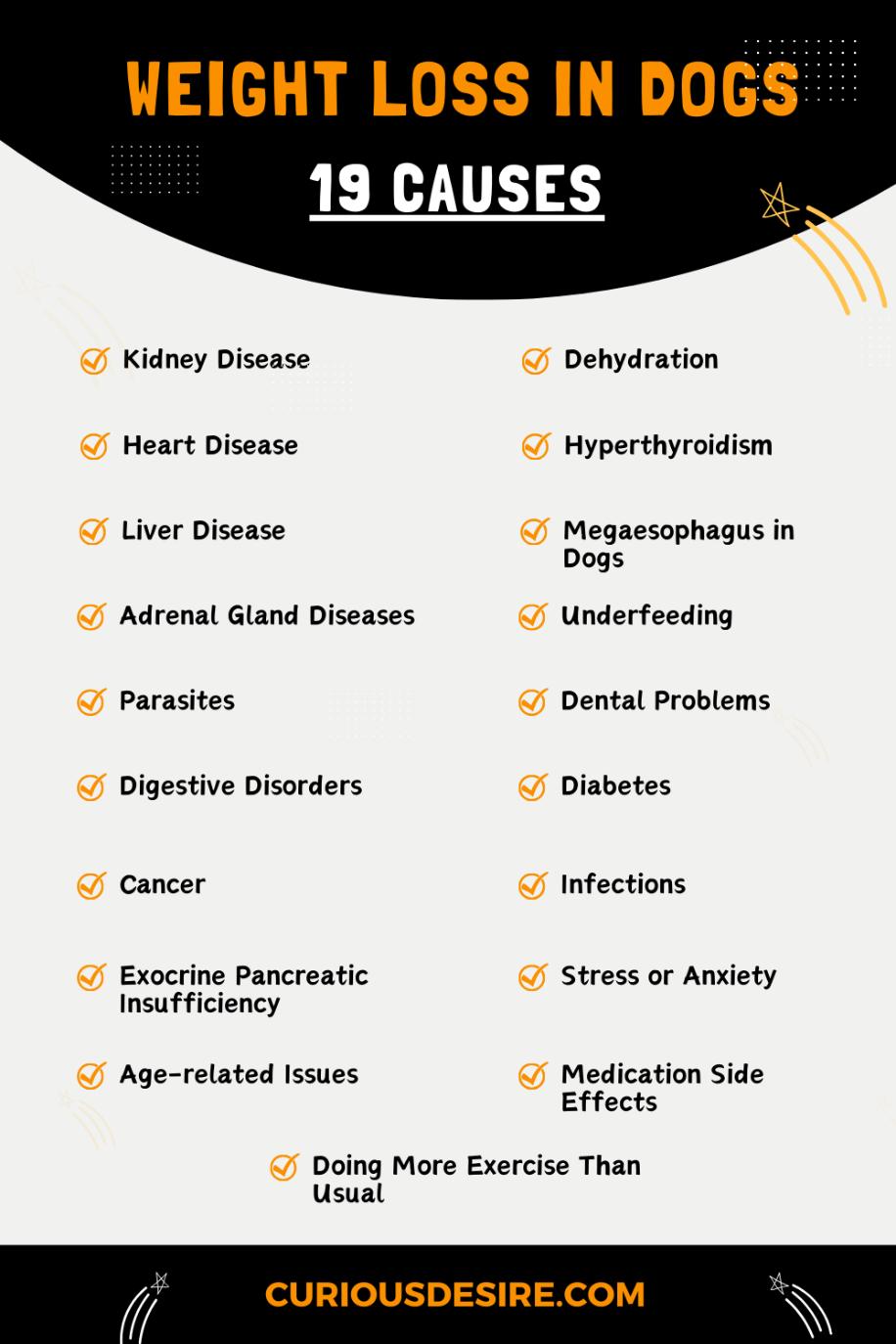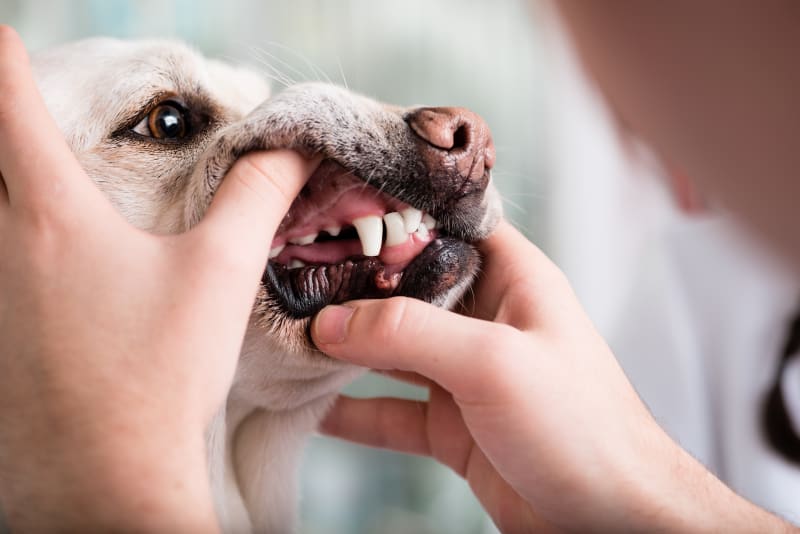Weight Loss In Dogs Causes FAQs
1. Why is my dog losing weight but still eating?
There are several reasons for this, including dental issues, digestive problems, thyroid issues, diabetes, or underlying diseases. It’s essential to consult with a veterinarian to determine the specific cause.
2. What tests are done for unexplained weight loss?
Diagnostic tests may include blood work, urinalysis, fecal examination for parasites, imaging studies like X-rays or ultrasounds, and specific tests depending on suspected conditions.
3. What is the reason for sudden weight loss?
Sudden weight loss can be due to acute illnesses, organ dysfunction, metabolic disorders, or emotional stress. Identifying the cause requires a thorough veterinary examination.
4. When should I be concerned about my dog losing weight?
If your dog is losing weight without a clear reason or if weight loss is accompanied by other symptoms like lethargy, vomiting, or changes in behavior, it’s crucial to consult a vet promptly.
5. What should I do if my dog is losing weight?
Schedule a vet appointment to determine the underlying cause. Provide detailed information about your dog’s diet, behavior, and any other relevant changes to help the vet diagnose the issue.
6. How can I make my dog gain weight?
Follow your vet’s recommendations, which may include adjusting the diet, providing a higher-calorie food, feeding smaller meals more frequently, and addressing any underlying health issues.
7. What food helps dogs gain weight?
High-quality, calorie-dense dog food with a balanced nutritional profile can aid weight gain. Consult your vet for specific recommendations tailored to your dog’s needs.
8. What is the best food to gain weight in dogs?
A well-balanced commercial dog food with added nutrients or supplements as advised by your vet can be effective in helping your dog gain weight.
9. Can rice help a dog gain weight?
While rice can be a part of a balanced diet, it alone may not provide sufficient nutrients for weight gain. High-quality protein and healthy fats are essential for a comprehensive weight-gain strategy.
10. How quickly can a dog lose 2kg?
The rate of weight loss varies, but a sudden loss of 2kg in a relatively short period is concerning and requires immediate veterinary attention.
11. How much weight loss per week is safe for dogs?
A safe rate of weight loss for dogs is generally around 1-2% of their body weight per week. Rapid weight loss can be a sign of underlying health issues.
12. How do I know if my dog has worms?
Common signs of worms in dogs include weight loss, lethargy, scooting, vomiting, diarrhea, or visible worms in feces. Consult your vet for a proper diagnosis and treatment.
13. How much weight loss is concerning?
Any unexplained or sudden weight loss, especially exceeding 5% of the dog’s body weight, should be considered concerning. Consult a vet promptly for evaluation and diagnosis.


